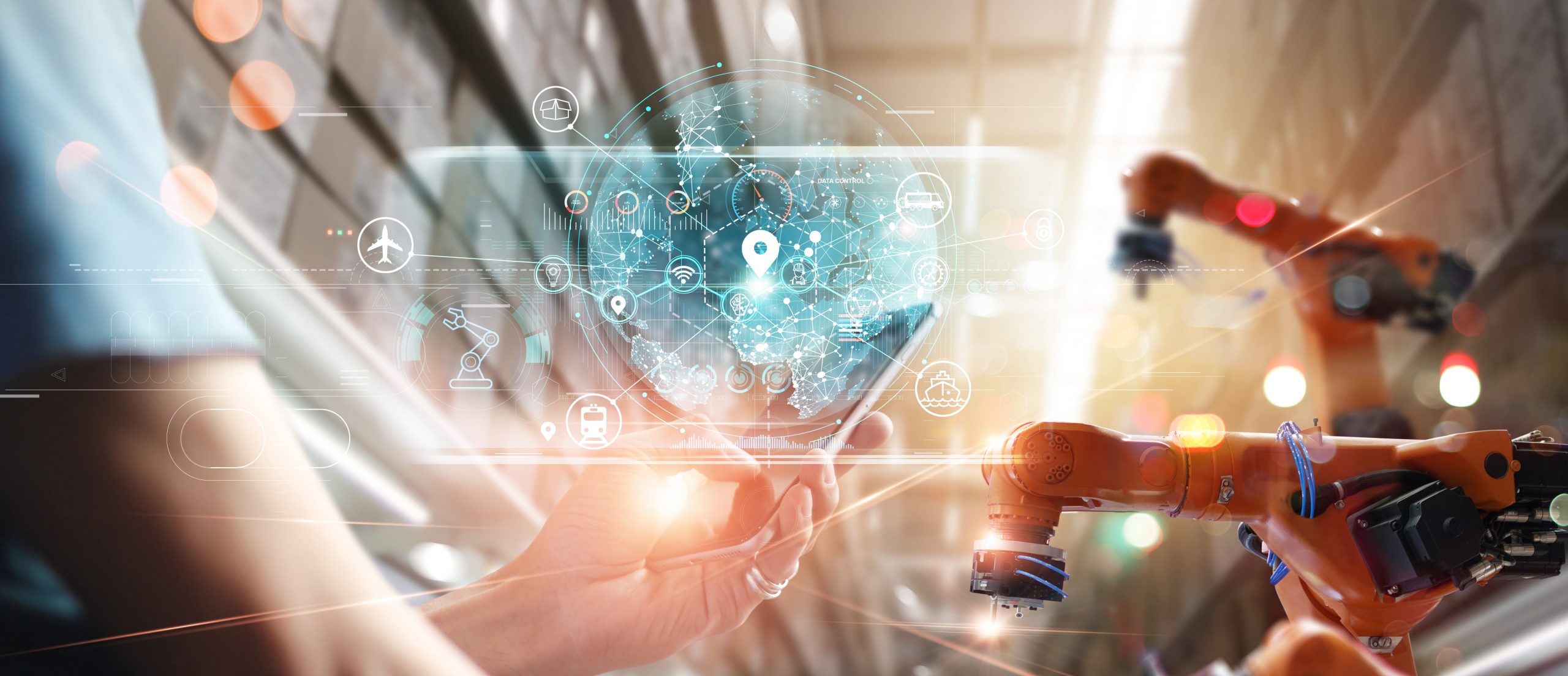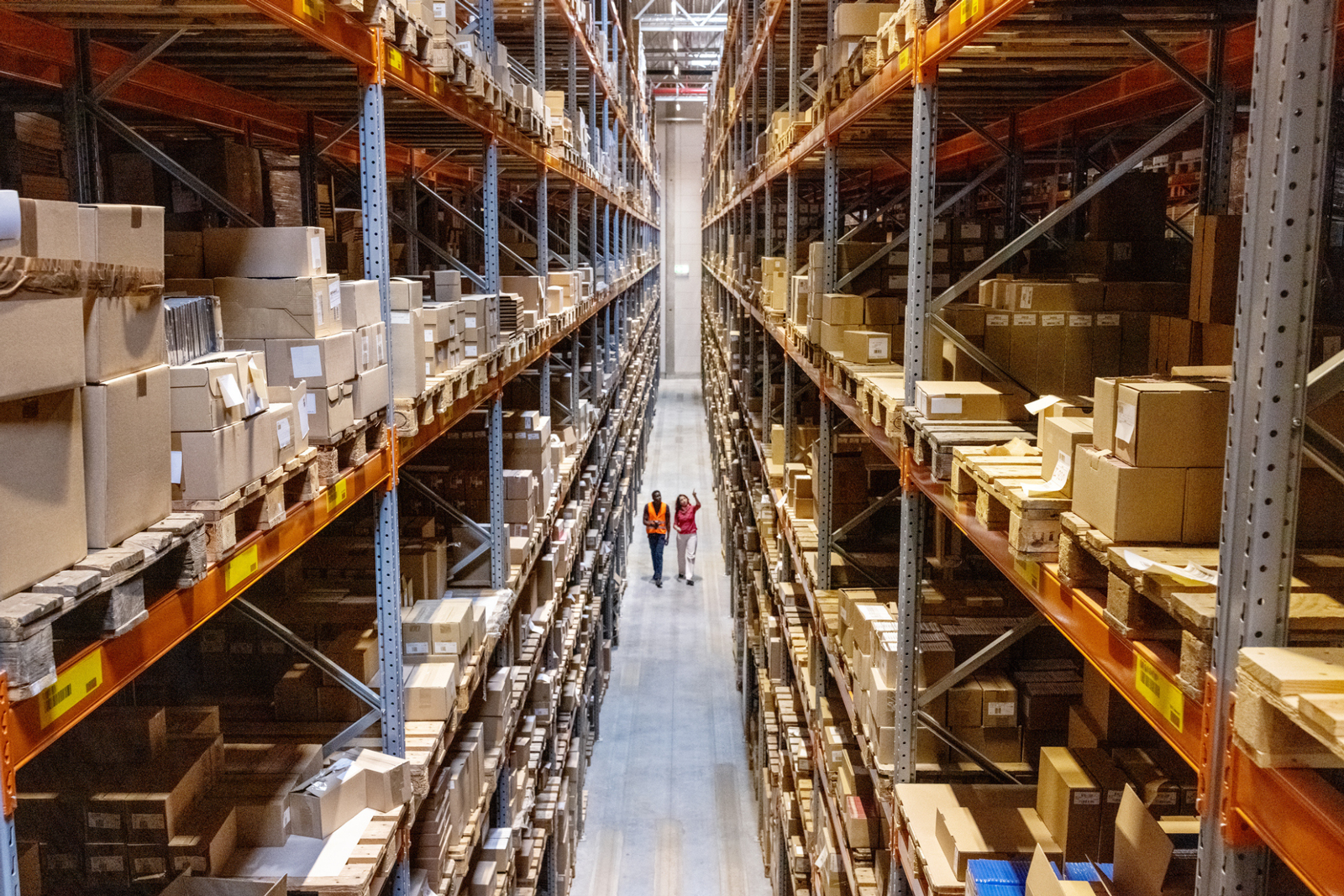
As many companies are beginning to realize the benefits of warehouse automation, other advanced technologies are now emerging to help overcome supply chain challenges. Artificial intelligence (AI) is viewed as the most impactful innovation in supply chain technology, according to the 2023 MHI Annual Industry Report, which predicts 73% of companies will invest in AI over the next five years.
From sourcing and procurement to distribution and delivery, AI is making strides across the entire supply chain, enabling companies to increase efficiency, reduce costs and improve the customer experience. Below are eight ways companies can utilize AI to optimize their supply chain operations.
Artificial Intelligence for Safety and Security
Whether protecting trailers and assets in the yard or protecting workers and goods in your distribution center, AI can be used to monitor your warehouse operations. When properly deployed, AI-enabled surveillance cameras can automatically detect security threats or safety hazards and send real-time alerts to managers and workers to help minimize response time and protect your most valuable assets. Data collected from event logs, such as the number of near-miss accidents or personal protective equipment (PPE) violations, can be utilized to take corrective action like reviewing best practices, providing additional training or other remedial measures.
Artificial Intelligence for Warehouse Automation
As distribution and fulfillment operations continue to cope with labor and space availability issues, more and more businesses are turning to goods-to-person systems and processes. Automated technologies driven by AI, including autonomous mobile robots (AMRs) and articulating arm robotics, have been gaining in popularity and are being deployed at rapid rates in distribution and fulfillment centers. Facility designs and implementations are now including AI-equipped technologies to perform repetitive labor tasks and minimize travel, enabling a more efficient flow of goods and increasing efficiency within the distribution center.
Artificial Intelligence for Predictive Maintenance
Equipment failure can result in costly repairs and downtime. AI can analyze data from equipment sensors to monitor system status, identify maintenance needs and predict failure before it occurs, enabling companies to improve equipment performance and minimize disruption to warehouse operations.
Artificial Intelligence for Inventory Management
Inventory issues are a major challenge at this time due to the various events that have affected consumer spending habits. Overstocking and stockouts can negatively impact customer satisfaction and a company’s bottom line. AI can analyze historical and real-time data to forecast demand and ensure companies have the right inventory available in the right place at the right time.
Artificial Intelligence for Optimizing Transportation
From rising rates to delivery delays, transportation presents a number of challenges for shippers. By analyzing real-time data on weather, traffic and other factors, AI can identify the optimal transportation route to reduce delivery times, fuel consumption and costs while also improving customer satisfaction.
Artificial Intelligence for Traceability
Some products, including food items and international shipments, are required to meet strict quality or regulatory standards. AI-enabled software solutions can provide an added layer of traceability to help minimize risk, ensure compliance and increase customer confidence.
Artificial Intelligence for Increasing Sustainability
Implementing sustainable practices has become a top priority for supply chains, as companies strive to improve their environmental, social and governance (ESG) performance. By monitoring and evaluating supply chain operations, AI can help companies make more sustainable decisions to reduce waste, conserve energy and minimize their impact on the environment.
Artificial Intelligence for Labor Management & Back-Office Operations
In addition to balancing workforce labor on the warehouse floor, AI can also automate many back-office processes, including document and report generation, data entry and analysis, and invoicing.
As the technology continues to evolve, AI will become a critical tool for supply chain success and business longevity. Companies that embrace AI early will benefit from reduced costs, improved efficiency and increased customer satisfaction. Contact us today to learn how your company can utilize the latest technologies to optimize your supply chain operations and create a competitive advantage.
How can we help improve your supply chain operations?
Schedule a consultation or contact Tompkins Solutions for more information.

Featured Posts
Discover valuable resources to enhance your knowledge.





